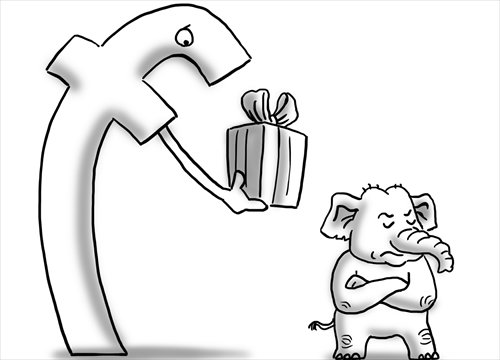Fight over Facebook Free Basics reveals extent of India inequality

Illustration: Liu Rui/GT
When Facebook provided Free Basics, a program of limited Internet services for free, in India, the response and outlook were expected to be pleasing and promising. Yet the plan was put on hold last week by the Telecom Regulatory Authority of India, after it has caused outrage within the country.
Mark Zuckerberg, the founder of Facebook, defended his company's motives in an opinion article published in The Times of India at the end of December, claiming that "Instead of welcoming Free Basics as an open platform that will partner with any telco, and allows any developer to offer services to people for free, they claim - falsely - that this will give people less choice … instead of recognizing that Free Basics fully respects net neutrality, they claim - falsely - the exact opposite."
From the business perspective, it is natural for Facebook to invest in this program, or any global Internet giant to treat India as a potential market, given the nation's large population. Despite the fact that India's Internet industry is for the moment lagging behind, it is developing rapidly. And Facebook's strategy is to put down some roots in India for now, in order to lay a foundation for more customers in the future.
However, against the backdrop of rapid development as well as the constant changes, disputes involving justice and fairness emerge every now and then. A number of people in India are against the Free Basics in the name of net neutrality.
The case is very similar to an incident many years ago. In 2006, India adopted a law that requires a reserved number of university slots for dalits, an underprivileged caste, to 49 percent from previous 22 percent. Massive strikes and protests broke out later in the country, especially in New Delhi, Mumbai and Bangalore. The protests were held by the rich, the upper castes, who claimed the law is discriminatory. They believed that according to the new law, the universities will no longer admit students by merit, but by their castes.
The reason why the Indian government made the decision is the pursuit of fairness, because the lower castes do not have many opportunities to access education. Yet the plan was misinterpreted.
There does appear to be a link between the protests against the new law and the suspended Free Basics service. The rich feel it is unfair that they have to pay for the Internet while the poor can surf online for free.
This isn't the mainstream voice of Indian society.
Years ago, there were some large-scale anti-reservation protests, but they failed to trigger a wider response throughout the country.
Nevertheless, the Free Basics controversy has once again mirrored the current development of the nation's policy of equality. After being implemented for all these years, the fundamental problem still exists. India still has the world's widest gap between rich and poor. There are still severe issues in its wealth distribution system. It is impossible for one administration to tackle, and for the moment, there is no way to solve it.
India has already confronted quite a few challenges on the path towards social justice, and has overcome some of them. For instance, the social status of Indian women has significantly raised, with dozens of female ministers in the country's cabinet. Yet the issues over the caste system, child labor, and profound corruption are hard to be touched or changed, even if there are laws and regulations to address the problems, the process of carrying them out is far from smooth.
It is not easy to envisage a fundamental solution to tackle inequity. But partial remedies like Free Basics or reservation in universities are better than nothing at all.
The author is director of Center for Asia-Pacific Studies, Shanghai Institutes for International Studies. opinion@globaltimes.com.cn